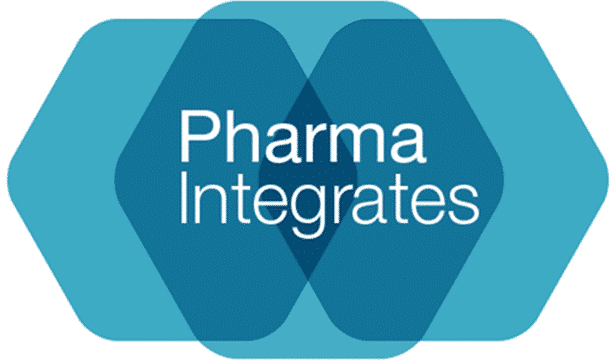Susan Rienow, Marie-Andrée Gamache and Antonio Payano
Fireside Insights at Pharma Integrates
In the rapidly evolving pharmaceutical landscape, the voices of industry leaders are critical in shaping our understanding of transformative change. Pharma Integrates’ fireside chat brings together three highly experienced industry leaders, who will share their valuable insights into the future of healthcare.
Susan Rienow (SR) Susan is Managing Director and Country President for Pfizer in the UK, leading the organisation’s work to deliver breakthroughs that change patients’ lives across the breadth of Pfizer’s innovative medicines and vaccines portfolio. Susan is also President of the ABPI (The Association of the British Pharmaceutical Industry), the industry body which exists to make the UK the best place in the world to research, develop and use new medicines and vaccines. Susan formally took up this role in May 2023, having previously served as the ABPI’s Vice President and co-chair of the ABPI’s Vaccine Group. Prior to being appointed Pfizer’s UK Country President, Susan led the company’s UK Vaccines business unit during the COVID-19 pandemic, and before that the UK Hospital business unit and Essential Health division. Susan has been at Pfizer for two decades, with experience across multiple global markets including in the US, Asia, and Europe, before moving to the UK in 2015.
Marie-Andrée Gamache (MAR) is Country President of Novartis UK and Ireland. She has spent over 20 years in the pharmaceutical industry, in a wide range of leadership roles at country, regional and global levels, across Europe, North America and Emerging Markets. Throughout her career, her priorities have seen her focus on helping create the right environment for better access to innovative medicines for patients, whilst also developing teams and company culture.
Antonio Payano (AP) is Chief Executive Officer for Bayer UK & Ireland. In his role he has been elected as co-Vice-Chair of the European Medicines Group. Antonio has had a succession of local, regional and global roles across Europe and the Americas. Before coming to the UK, he was Head of Region Eastern Europe/Middle East and Head of Global Healthcare Programs, where he led efforts to improve patient access to innovative medicines in small to mid-sized countries. He is known for driving innovation and leveraging digital advancement to optimize patient outcomes. Bayer’s portfolio and future pipeline extends across primary and secondary care, including specialised commissioning products.
As the pharmaceutical sector undergoes a digital revolution, we asked our speakers to shed light on the game-changing innovations that are propelling the industry forward. From precision medicine and artificial intelligence applications to telehealth solutions, our leaders share their perspectives on technologies shaping the future of drug discovery, patient care, and beyond.
SR: Embracing digital innovation is essential to advancing science. There is much discussion around Artificial Intelligence (AI) and its potential to disrupt approaches across different industries. In the healthcare industry AI has the potential to help enhance the medicines development process.
AI is something we’re already embracing. At Pfizer, we use AI to predict important properties for large molecule therapies, for example, their viscosity, or “thickness”. By lowering the viscosity of our monoclonal antibody therapies, the therapeutic dose may be delivered by a narrow-gauge needle, thereby improving the patient experience.
It’s still early days in the landscape of AI and machine learning in the pharmaceutical industry, but these technologies hold significant promise for bringing treatments more quickly to the people who need them.
MAG: Innovative science and healthcare are coming together with a digital and data revolution to treat and potentially cure disease on a scale not seen before. As a healthcare company powered by advanced therapy platforms and data science, we are continually exploring new ways to work with partners to harness the potential of digital and data advancements to address our greatest healthcare burdens. With the potential for results, such as AI generated drug candidates. It will be more important than ever to work in partnership, so I am excited to see the UK investing in this space.
AP: In recent years we have seen a surge in digital innovations in the pharmaceutical industry. From artificial intelligence (AI) to telemedicine, these advancements are transforming the way we approach healthcare.
Bayer is at the forefront of these digital revolutions, driving change and improving patient outcomes. AI-powered technologies enable us to analyze data and develop targeted therapies and personalised treatment plans. Whilst telemedicine allows patients to access healthcare services remotely, ensuring continuity of care, even during the pandemic. Digital therapeutics combine digital technologies with pharmaceutical interventions to manage chronic conditions effectively.
We prioritise patient-centricity by developing or investing in digital tools and platforms that enhance engagement and provide valuable information and support to patients. For example, ‘My Kidney Assistant’ has recently been launched, a resource developed and manufactured by Cognitant in cooperation with and funding from Bayer, designed to provide type 2 diabetes (T2D) patients with the information and resources to help monitor and improve their kidney health.
Looking ahead, we explore our speakers’ hopes for the next five years in healthcare development. What groundbreaking advancements do they envision, and how do they anticipate these changes will impact patient outcomes, accessibility, and the overall healthcare landscape?
SR: As we all experienced during the pandemic, and through our own personal experiences, good health really is our biggest asset. I believe health should be viewed as an investment and something that allows us as individuals, and as a society, to thrive.
At a time when economic inactivity due to long-term sickness is rising dramatically, a clear focus on prevention and health has never been more important. To fully realise this, we must look at all the various building blocks of health. One of those blocks, is how we ensure the healthcare system has the right tools at its disposal.
I would love to see the UK become one of the best places in the world to develop and launch a medicine, from the early science to medicines reaching patients. The UK has an amazing scientific base, academic expertise and of course a brilliant and resilient NHS. But as we look to the future, we must further evolve the way we embrace innovation.
In the same way we all pulled together during the pandemic, Government, the NHS, industry and other relevant stakeholders need to work together to make this happen.
MAG: I hope to see real progress in adopting a preventive and population health management approach to health and action in tackling health inequalities. At Novartis, our innovative collaboration with the NHS is an important step towards this. We are reducing the risk of cardiovascular events with improved management and treatment of high cholesterol in primary care. Through scaling-up proactive delivery of care to high- risk patients, we aim to improve health outcomes for all. This approach can be scaled to the areas of biggest health burden for the country while ensuring we work together to eliminate post code lotteries for medical access.
AP: The future of healthcare holds immense promise with widespread adoption of personalised medicine, tailoring treatments to individuals for maximum efficacy and minimal side effects using genomics, proteomics, and digital technologies.
The benefits of personalised medicine include:
- Improved treatment outcomes based on individual characteristics
- More accurate and earlier diagnoses through genetic profiling
- Targeted therapies with fewer side effects and better patient outcomes
- Cell and Gene therapy
- Proactive prevention and risk assessment based on genetic predisposition
- Long-term cost savings through optimsed resource allocation
Finally, we turn our attention to the UK as a strategic location for fostering pharma innovation. With its rich history in life sciences and a burgeoning ecosystem of research institutions, pharmaceutical companies, and startups, is the UK a good location to support pharma innovation?
SR: The UK has strong foundations to build a thriving life science ecosystem, particularly given its scientific and academic expertise; but it can lag behind when it comes to fully embracing innovation.
According to Office for Life Sciences (OLS) data, the UK has consistently slower adoption of new medicines compared to other countries. For example, if we look at medicines launched between 2017-2021, one year after introduction, for every 100 patients who get access to a new medicine in other comparable European countries, 74 UK patients get access. This rises to 97 out of 100 patients getting access five years after launch.
Another significant driver is two of the key pricing mechanisms used by the government to control medicines pricing – the Voluntary Scheme (known as VPAS) and the Statutory Scheme. The UK needs to return to internationally competitive payment rates and deliver a sustainable approach to medicines provision.
Addressing both points is critical to becoming an investment magnet for the life sciences industry and to improving the health of the nation.
MAG: The UK has the potential to be a global leader in pharma innovation, with the NHS having 67 million patients under one roof and access to world-leading academics. We believe in this potential and remain committed to the UK life science sector from drug development to patient access. However, we know there are challenges across the system, which have worsening patient outcomes, particularly in cardiovascular disease and cancer. We have seen the true potential of UK pharma innovation through crises, such as the pandemic, and believe in its potential for patients, when we work together in partnership.
AP: The UK was previously viewed as a vibrant hub for pharmaceutical innovation with strong research infrastructure and world-class universities. The Life Sciences vision published in 2021, has provided a clear set of imperatives The UK Government has made commitments to promoting life sciences, and with its access to global markets, the UK is positioned as a compelling destination for pharmaceutical companies.
However, the challenging commercial environment that we find ourselves in with innovative treatments makes this more difficult. The UK negotiates some of the lowest prices for medicines and implements various budget impact measures. The VPAS scheme claws back revenues at 26%, and in addition to that, the low and slow uptake of innovative medicines we see here limits our ability to make the case to bring investment to the UK right now.
In summary, the UK’s National Health Service (NHS) presents both opportunities and challenges for pharma innovation. While the NHS provides a unique platform for conducting large-scale clinical trials and real-world data analysis, it currently faces challenges around backlog of care and workforce vacancies.
These themselves do provide opportunities for Pharma to support the NHS and we work in partnership with these teams across the UK and Ireland in many ways to support improvements in care for people.




